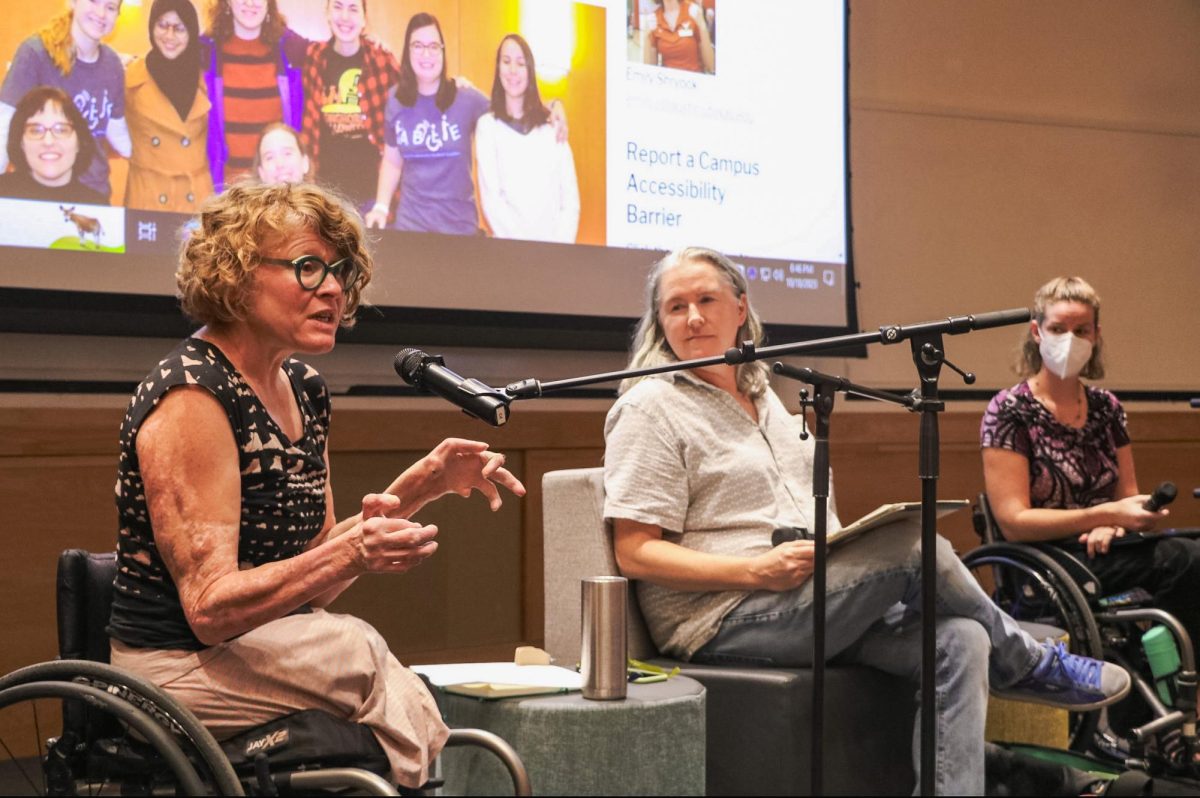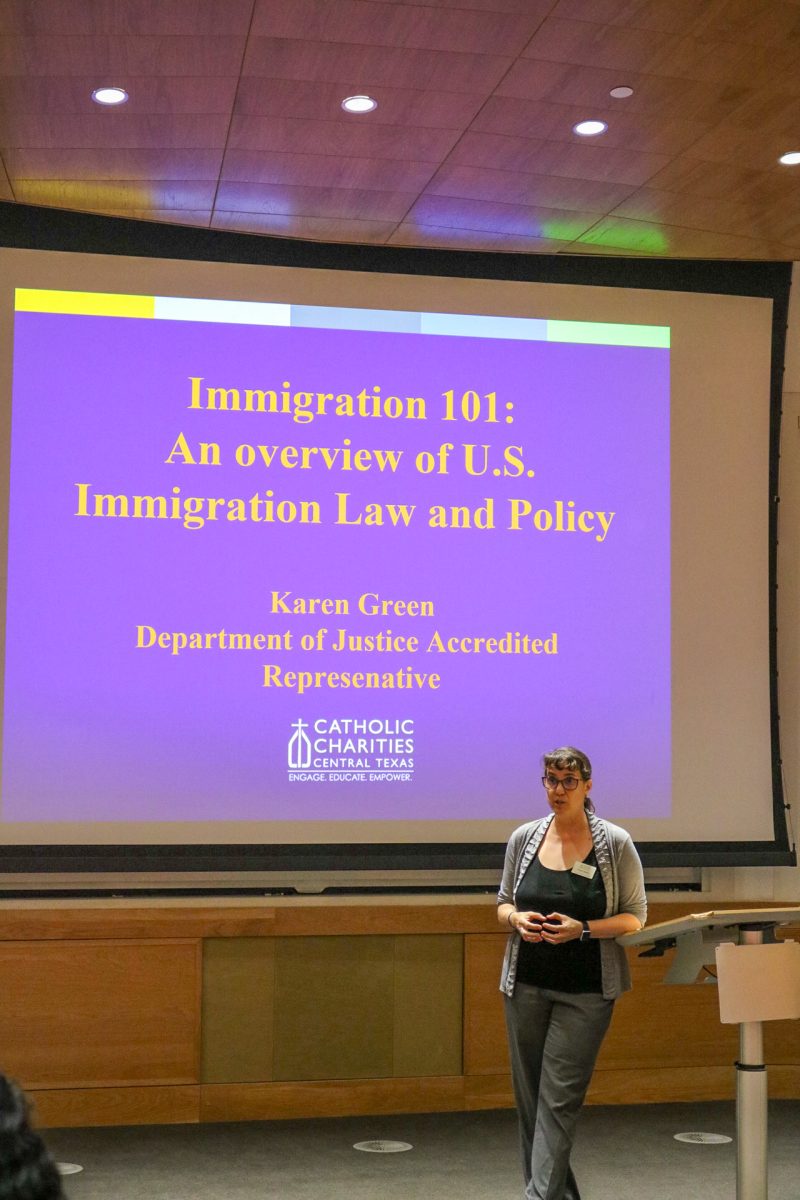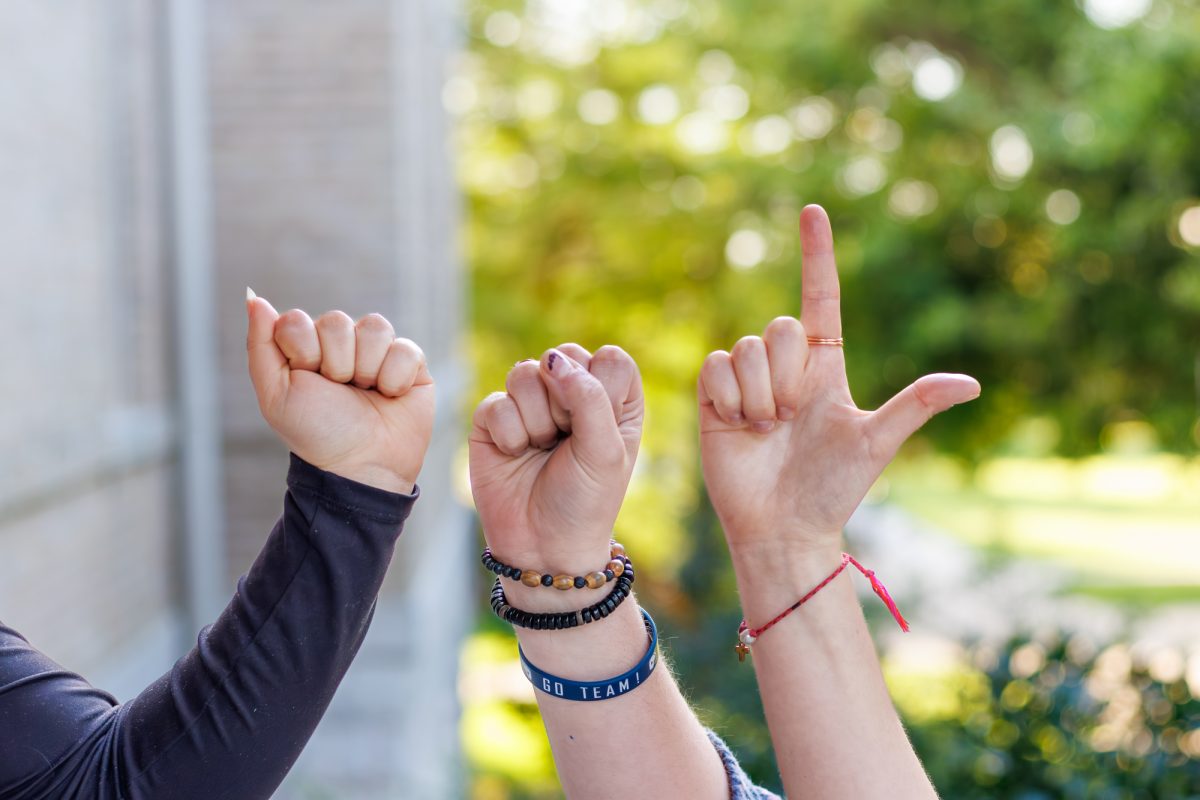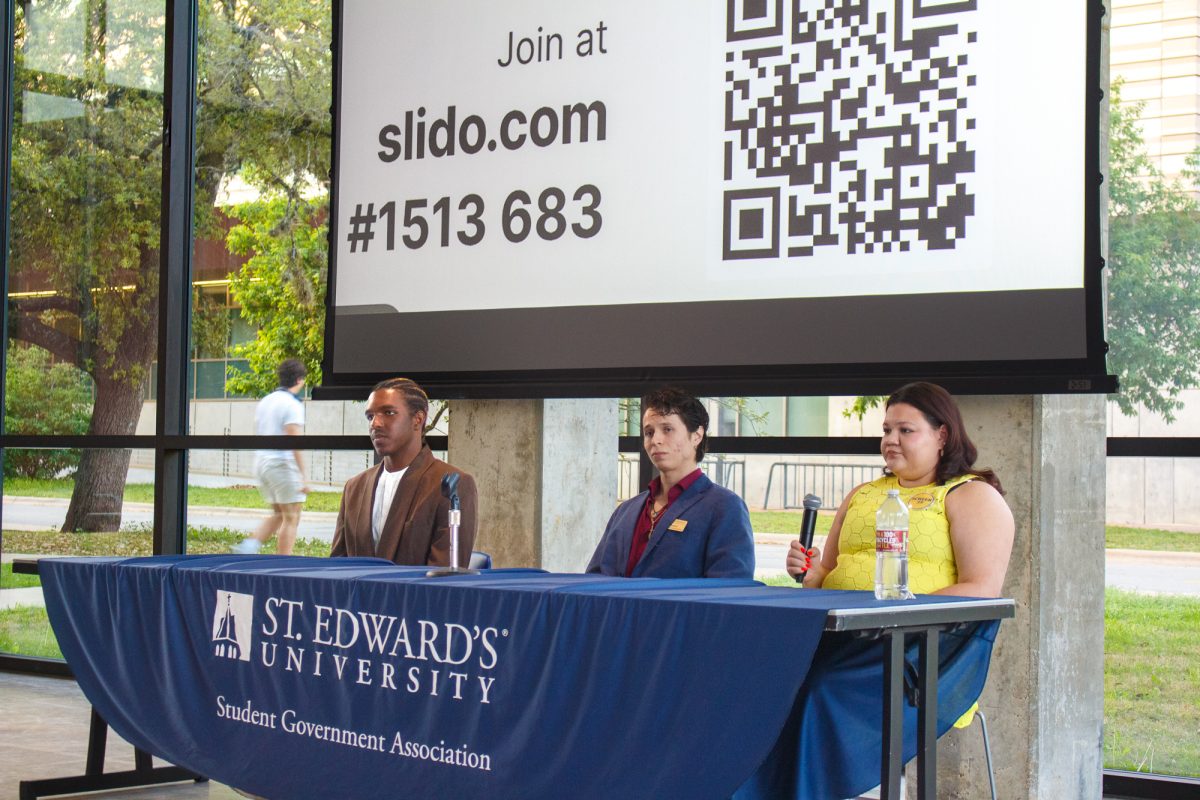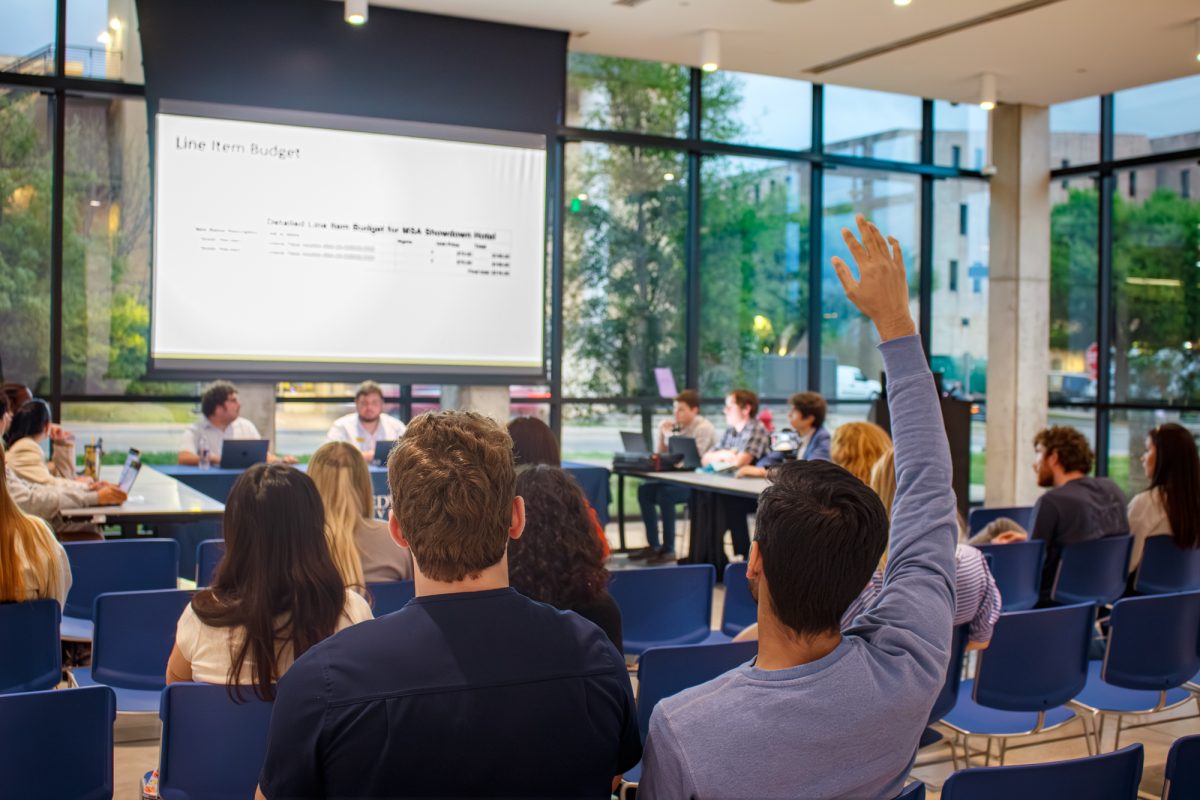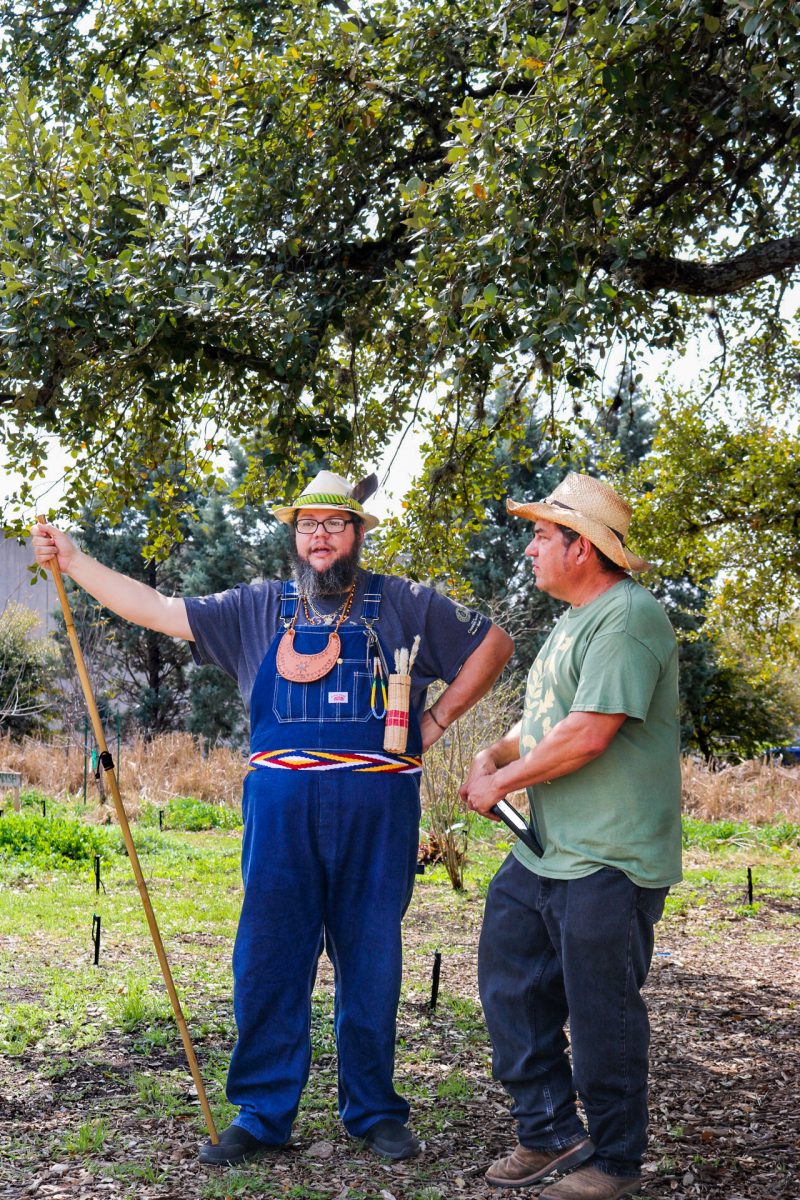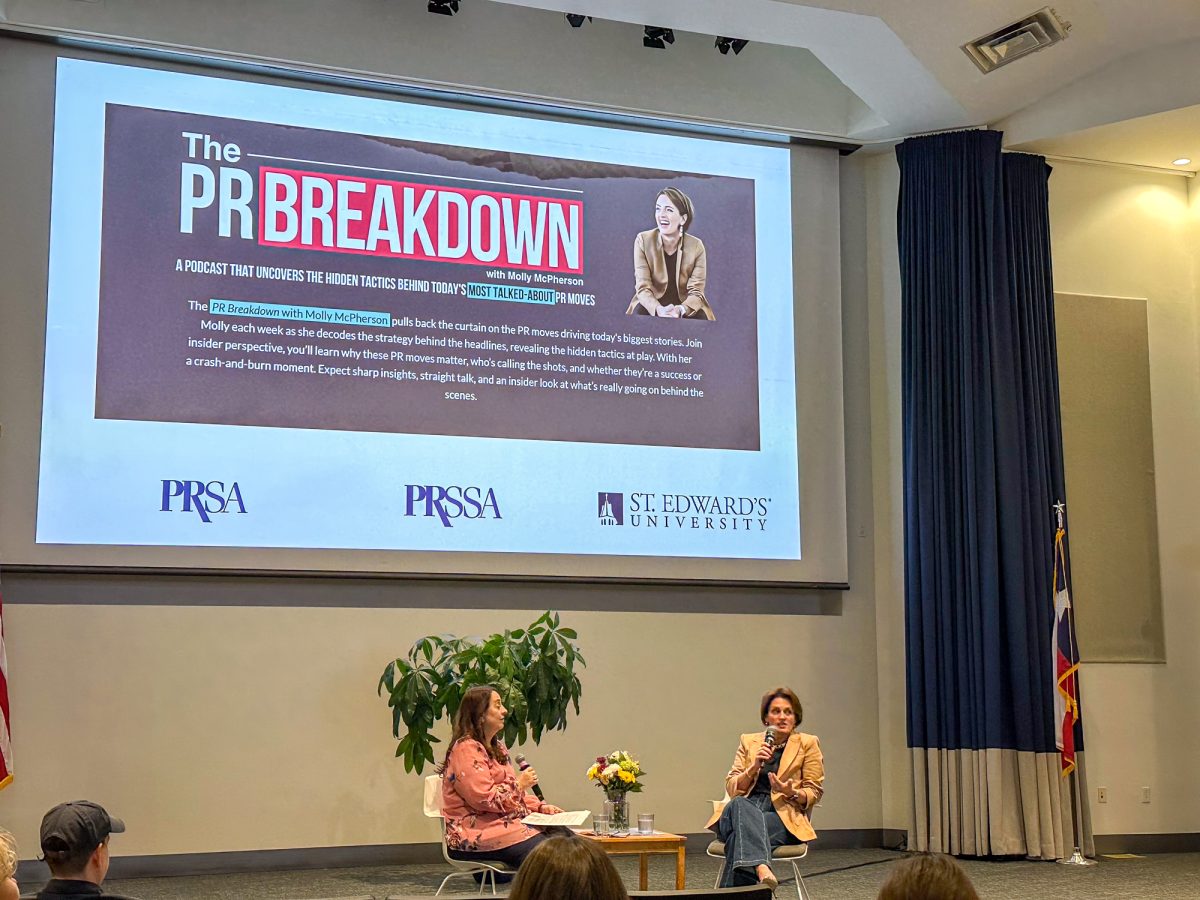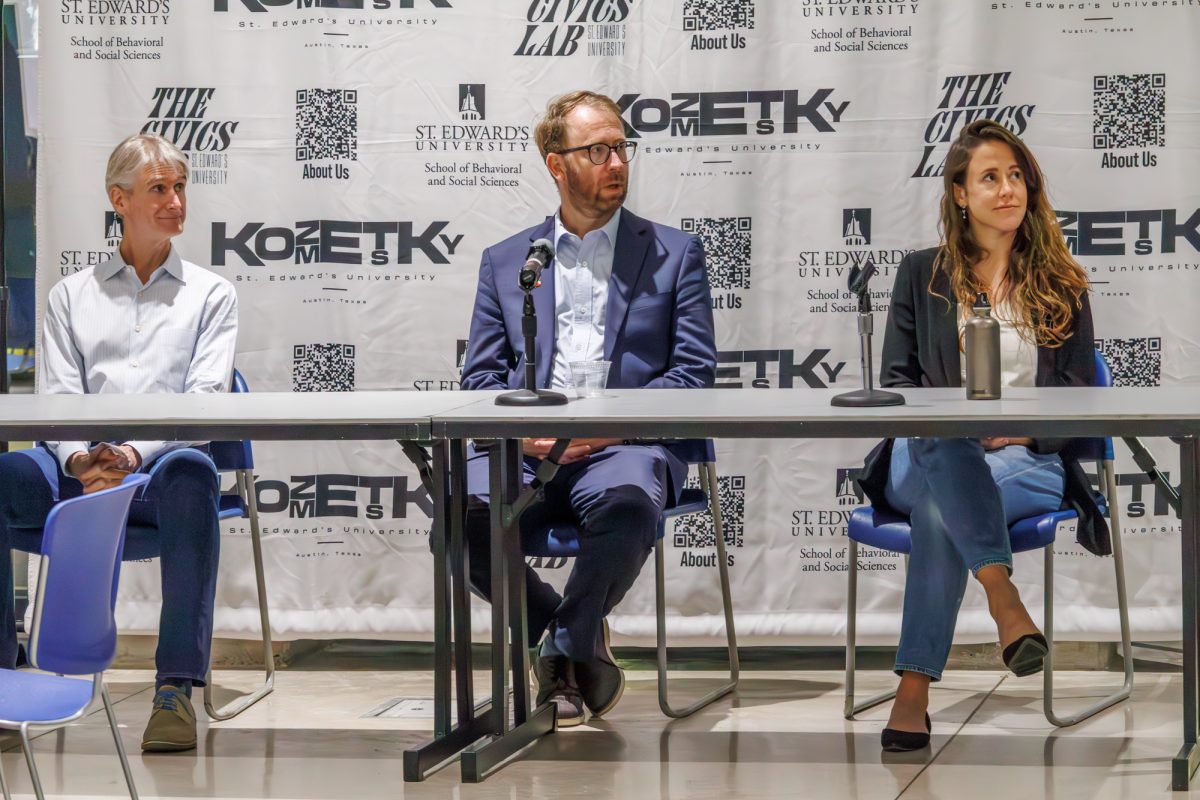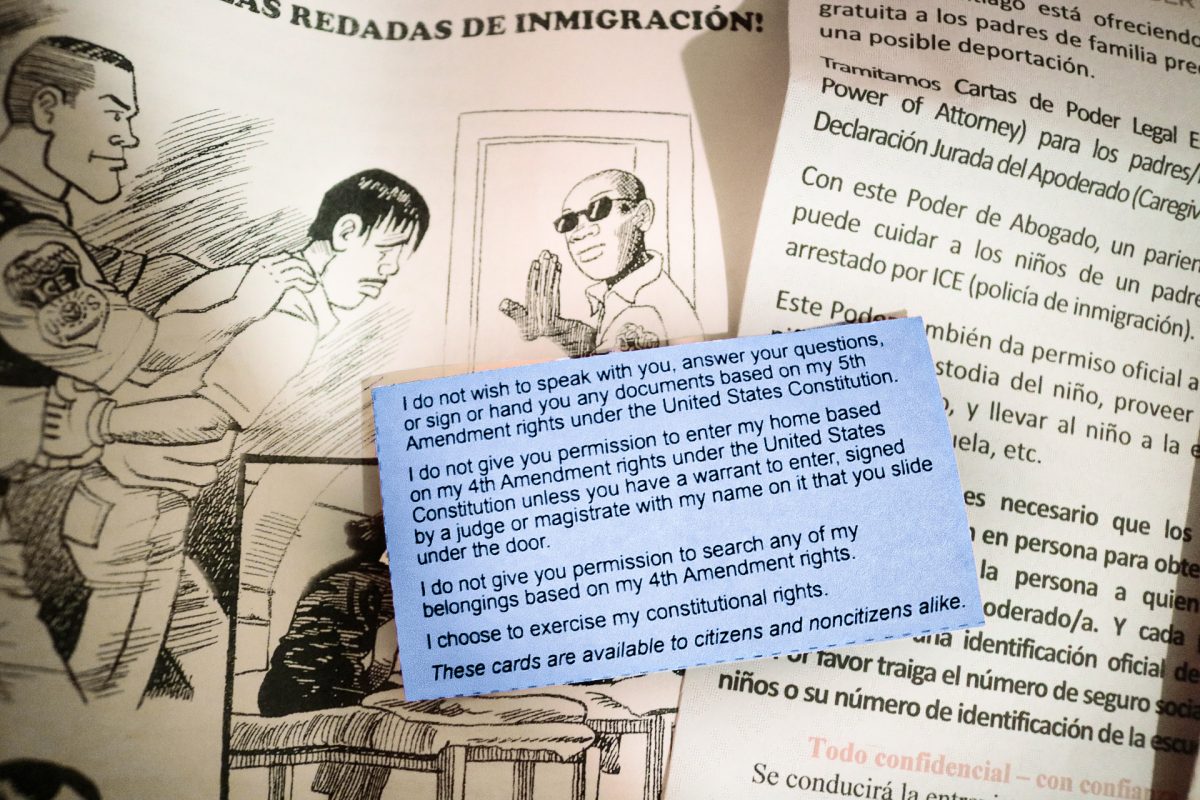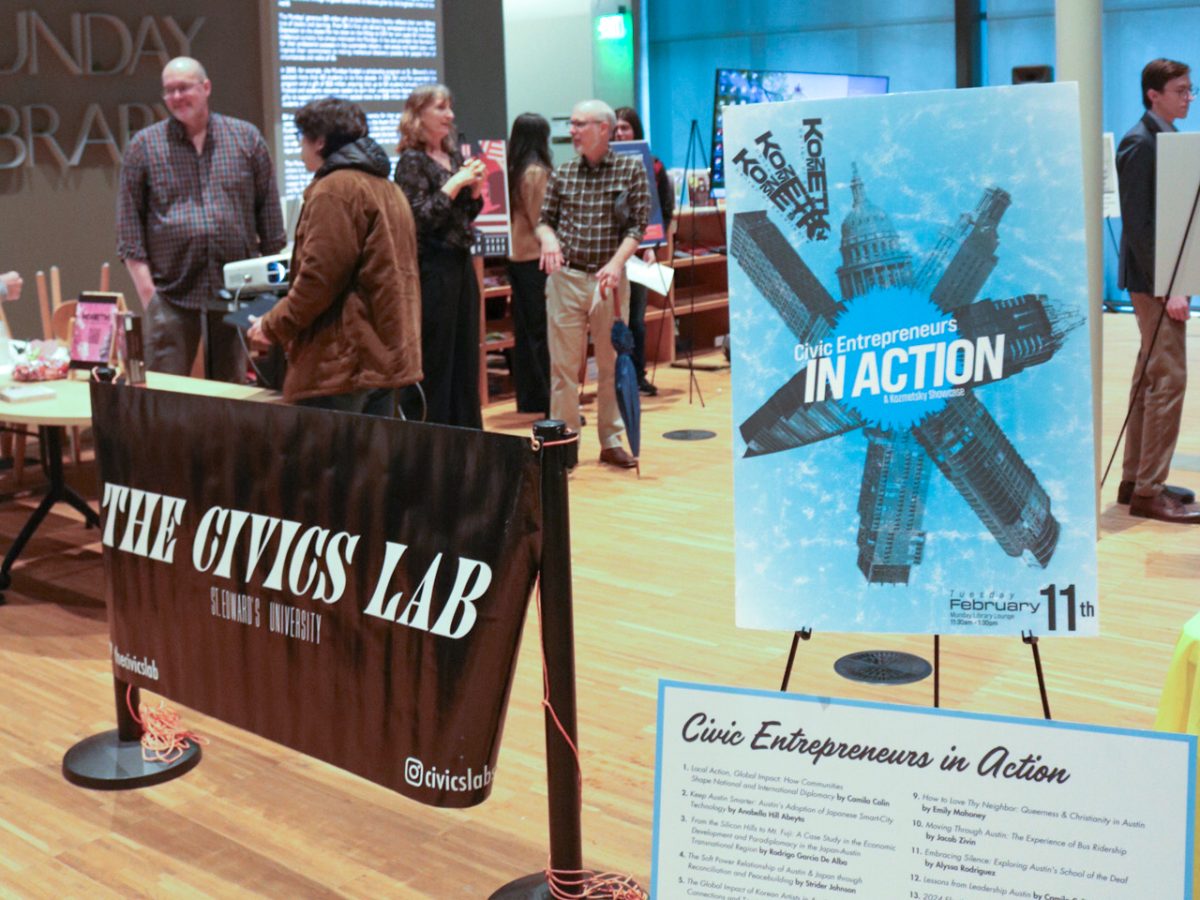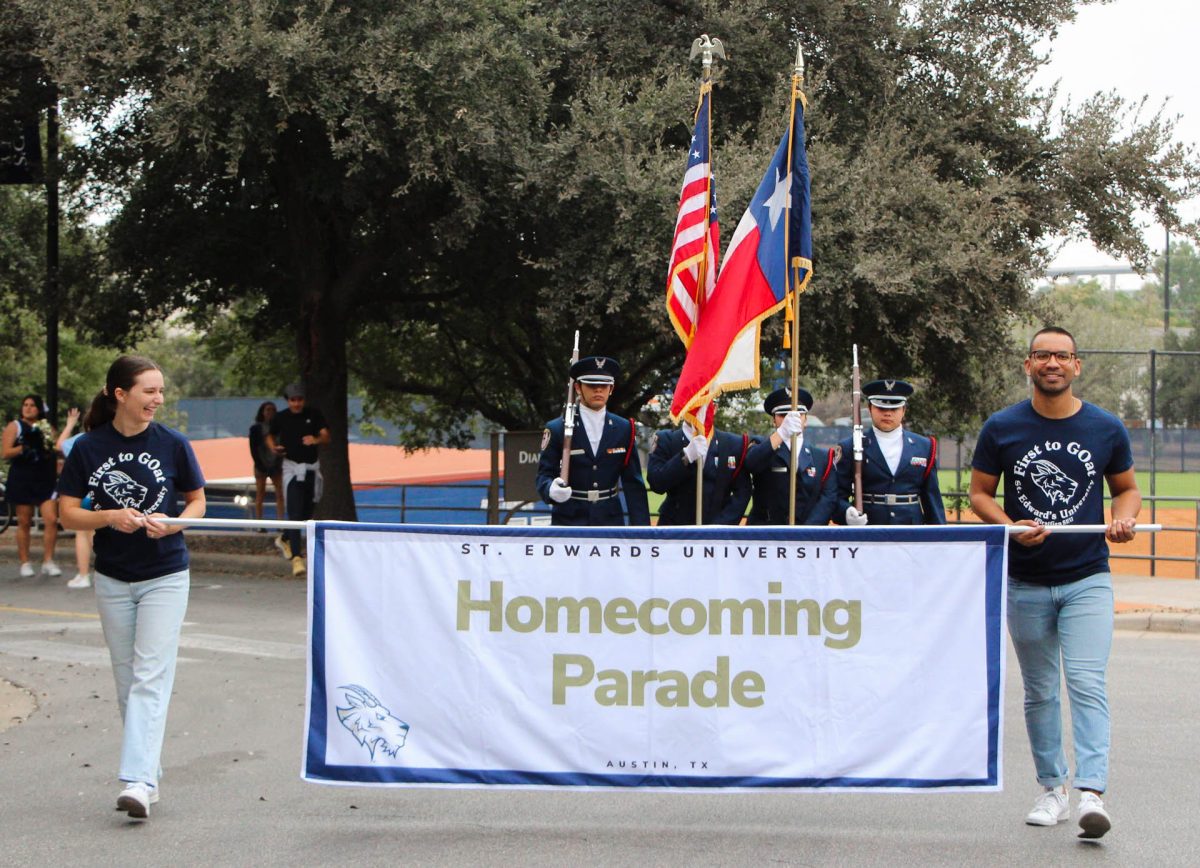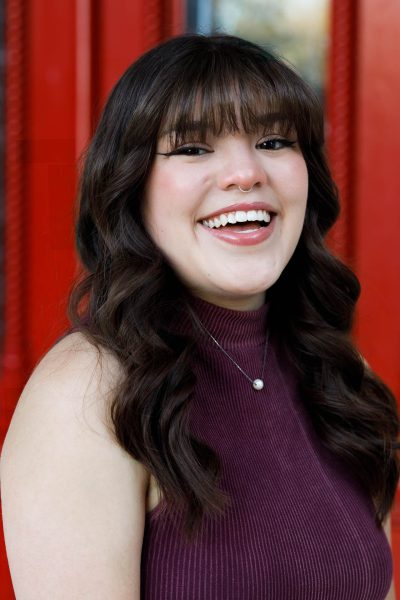Two guest speakers from the University of Texas at Austin were invited to speak to students about “New Directions in Disability Justice” on Oct. 18 in Carter Auditorium. The two speakers were introduced by Alex Barron, the freshman seminar director at St. Edward’s. They spoke about various topics regarding the disabled community and their own personal experiences with disability.
The event tied in with this year’s freshman common read “Disability Visibility” edited by Alice Wong, which is a collection of essays by and about people of the disabled community.
The first to speak was Alison Kafer, Ph.D. Kafer is an associate professor of feminist studies at UT Austin and author of the book “Feminist, Queer, Crip,” that was published in 2013.
Kafer began her segment of the discussion speaking about her background. She explained how her experience was very sudden, as she became disabled the year after she graduated from college. She decided to attend graduate school and took an interest in disability studies, and said that she found her place when she discovered disability culture and activism.
She explained that her experience with being surrounded by a group of other people with disabilities made her realize the importance of doing disability studies work and creating more disability-friendly places.
The next speaker was Emily Shryock. Shryock is the director and founder of the Disability Cultural Center at UT Austin, which serves as a place for connection and advocacy for the disabled community on campus.
Shryock, being a paratriathlete, stressed that sports are a big part of her life and served as her entry into disability culture. She stated that she has a progressive condition and started using a wheelchair her freshman year of college. That experience really made her miss being an athlete and being active. With the help of her local rehab hospital, she was able to participate in wheelchair sports. Wheelchair rugby was the first sport she participated in.
Shryock mentioned that she was studying American Sign Language with the intention of becoming an ASL interpreter around the same time she started using a wheelchair. This helped her realize that her own experience and the cultural aspects of the deaf community were alike.
She changed her major to disability studies while she was still in undergrad, and she was able to make her way to her personal and professional path in regards to disability culture. Shryock got her masters at UT Austin and founded the Disability Cultural Center this past January.
Both speakers touched upon how disabled communities and disability activism have changed and become more diverse over time and answered questions about the changing dynamic of disability acceptance.
Kafer said she always looked at disability in terms of how it could relate to feminist and queer work; the first academic conference she attended was a women’s, gender and sexuality studies conference that was about disability. She said her introduction was not based on the foundational sense and gave her a more diverse perspective, but shed positive light on different groups that are also a part of the disabled community.
Shryock said that her interest in the subject paved the way for disability studies during her time at her university, as it wasn’t very common to learn about various topics regarding disability. She paved the way for others to understand why disability studies was an important and legitimate degree to receive.
Kafer and Shryock both gave educational, insightful testimonies and effectively informed the students about their experiences of being a part of the disabled community. They shared their opinions about the ways the world views the disabled community and how it continues to improve and change.


